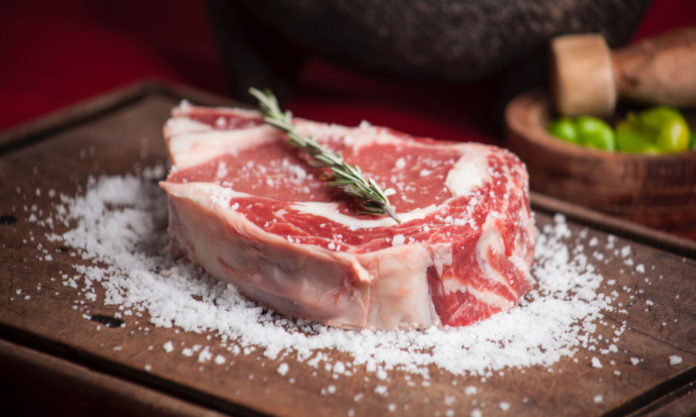Abbatoir. One of those things we wish didn’t exist, perhaps something we hope we could uninvent. But that reality may in fact come to be in the not so distant future, with scientists in Nanjing among those at the global forefront for the drive to cultured meat.
At the forefront, yes. First, no. That title goes to Singapore, when on 19 December of last year, diners became first in the world to tuck into lab-grown meat. The price? A bit more than they would have preferred. The cost? Zero immorality.
The day after, Nanjing Zhouzi Future Food Technology, which also goes by the more catchy English name, Joe’s Future Food, received ¥20 million in financing from Matrix Partners China (经纬创投因). The funds are intended for the development and large-scale production of cultured meat and accelerating the application of related products.
Led by Professor Zhou Guanghong, who also works at the College of Food Science and Technology in Nanjing Agricultural University, Joe’s Future Food is recognised (by its competitor) as China’s first cell-based meat manufacturer.
In fact, it was back in 2009 when Zhou and his team first began their research on possible cell sources for cultured meat. Yet it took until 2015 and 2017 for them to respectively isolate high-purity pig and bovine muscle stem cells. By 2019, the team had developed production moulds capable of being scaled up for cultured meat.
Then came the big breakthrough. On 18 November, beginning with the cells of an animal and by replicating natural tissue growth, China’s first cultured pork was created in Nanjing Agriculture University. With their groundbreaking minced pork, Joe’s Future Food was founded the following month and China had joined the global cultured meat club.
The first and not the last. Again a day later, laggards Beijing-based startup CellX announced on 21 December that it had completed a seed round for an unspecified amount of funding from a hotchpotch of investors from the Chile, China, Germany and the UK.
Back in Singapore, customers at the restaurant, 1880, were virtually united in the claim their cultured chicken was indistinguishable from meat procured by traditional means.
But the feat was only made possible by the fact that the island state’s government had been the first to grant regulatory approval for the sale of cultured meat by restauranteurs.
That of course is what everyone wants to see happen in China too.
Such a move could not come quickly enough. Especially in the case of pork, a staple food in China. The industry is never far from the headlines; spiralling prices and one sort of swine flu or another have created a demand for alternatives that is among the highest in world.
Worldwide, according to the National Review, some 95 percent of meat, eggs, and dairy items today are produced using industrial livestock methods.
And it’s a growing awareness of these facts and increased pet ownership in China that may be behind an interest in alternative meats that is substantially higher than in many other countries.
In February of 2019, peer reviewed research publisher, Frontiers in Sustainable Food Systems, revealed the results of a survey conducted among over 3,000 people in China, India and the USA. Fully 59.3 percent of Chinese respondents said they were very or extremely likely to purchase planet-based meat, a number double that for the Americans, at only 29.8 percent.
No wonder research firm, Euromonitor, predicts the market for plant-based and cultured meat in China to be worth $11.9 billion by 2023.
Hu Liangyu, analyst at ChemLinked, a Chinese Fast-Moving Consumer Goods market intelligence platform, spoke on the subject with KrASIA, which specialises in reporting on technology trends in emerging markets. “Artificial meat on the people’s plates may only be a matter of time,” Hu said. “It is possible that after ten years, artificial meat products will be popular, and the price is cheaper than traditional meat products. By then, real meat might be scarce instead”, said Hu.
And now firms such as Joe’s Future Food have the money to potentially make this a reality.
Formed in 1976, Matrix Partners has a track record for choosing technology investments that really pay off. Just a few years after, the firm was among those willing to take a bet on a new startup that they believed had the potential to become an industry leader. That startup was Apple.











